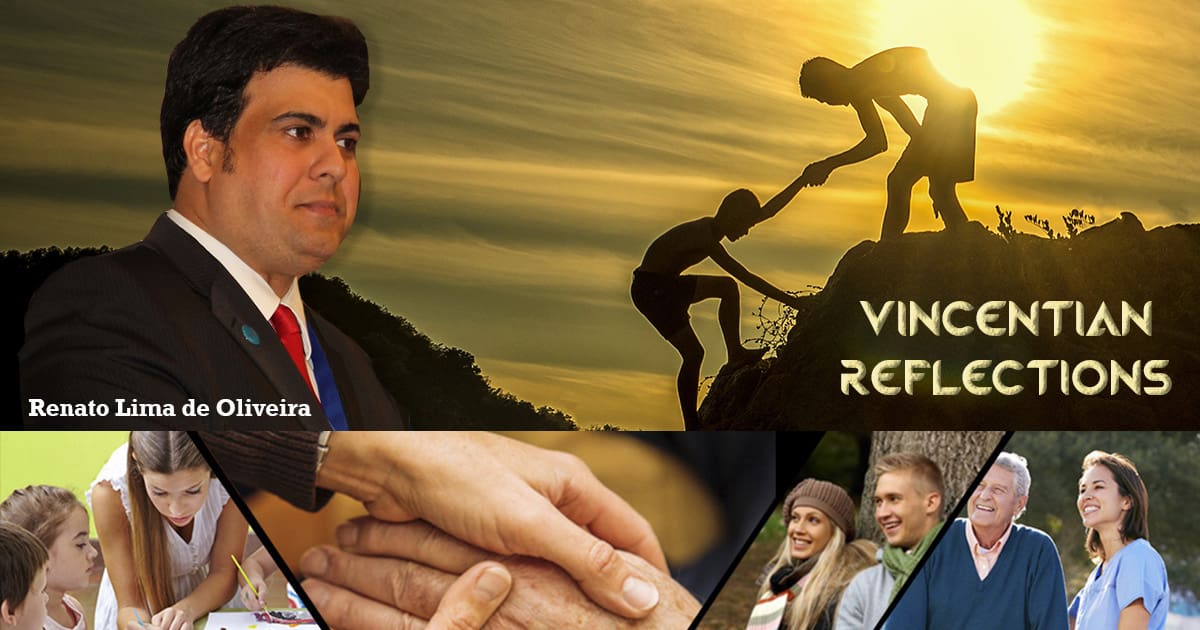On August 28, we celebrate “Volunteer Day,”[1] remembering the people who help others without worrying about recognitions or status. A fairly complete definition is available on the website of the Comunidade Solidária Program:[2] “A Volunteer is the citizen who, motivated by the values of participation and solidarity, donates his or her time, work and talent, spontaneously and without remuneration, to favor of causes of social and community interest.”
So are the vincentians: we act as volunteers in favor of families in need, as well as instituting charitable organizations that serve children, young people, the sick and the elderly. Our work is totally free, unpaid, nonpartisan, apolitical and only focuses on evangelical charity.
But, why is it so difficult to sensitize civil society towards volunteering? Why is the number of volunteers still small? To be a volunteer, three ingredients — that we do not always find in people with the intention of helping — are necessary: availability of time, commitment and overall vision. We will explain each of these concepts.
Availability of time: today it is quite common for people to have no time for anything. In fact, it is often the busiest people who end up finding extra time to work as volunteers. It’s amazing, but volunteers are usually very busy people. Finding free time to practice charity is not very common. It is useless to be full of good will to help, if the person does not have time.
Commitment: sometimes many people come to participate in some voluntary activities, especially during the month of December (at Christmas time, in which people become more generous), but then disappear without saying the reasons for their departure. Voluntary participation must be responsible and continuous, since the lives and the future of many of the beneficiaries depend on our actions. Without commitment, no social work manages to be effective and achieve the intended objectives.
Finally, the lack of overall vision: it also greatly influences the effectiveness of volunteer work. If the volunteer has doubts in answering the questions: why am I doing this?, what is intended with this work or what does social inequality have to do with me in my city?, it is because he is not aware of his role, social actions without understanding their relevance and ignores the feeling of compassion that is closely related.
After all, helping people is good for those who practice this kind of actions. American and European research has shown that volunteers have better health and live longer. That is to say: helping your neighbor suits you! And if someone still has doubts about where our neighbor is, it is enough to look around and ask: “Who is my neighbor?”[3]
The Society of Vicente de Paúl suffers from problems similar to those of any other charity organizatrion. Our associates do not always have time availability, or commitment to the cause of St. Vincent, or an overall vision. We do not always have, in our Conferences and Councils, mature volunteers, aware of their role in the community and aware of our objectives: personal sanctification and the promotion of the needy. We have to pray.
[1] In Brazil, the National Day of Volunteering was instituted on August 28, 1985, through Law No. 7352, signed by the then President José Sarney. However, at the international level, the same year 1985, the UN General Assembly decreed December 5 to be the International Volunteer Day for Economic and Social Development [translator’s note].
[2] Comunidade Solidária is a program of the federal government of Brazil created in 1995 by the then president Fernando Henrique Cardoso, who signed decree nº 1366, of January 12, 1995. It was closed in December 2002 [translator’s note].
[3] Cf. Lk 10:29.
Renato Lima de Oliveira
16th General President of the Society of Saint Vincent de Paul






0 Comments